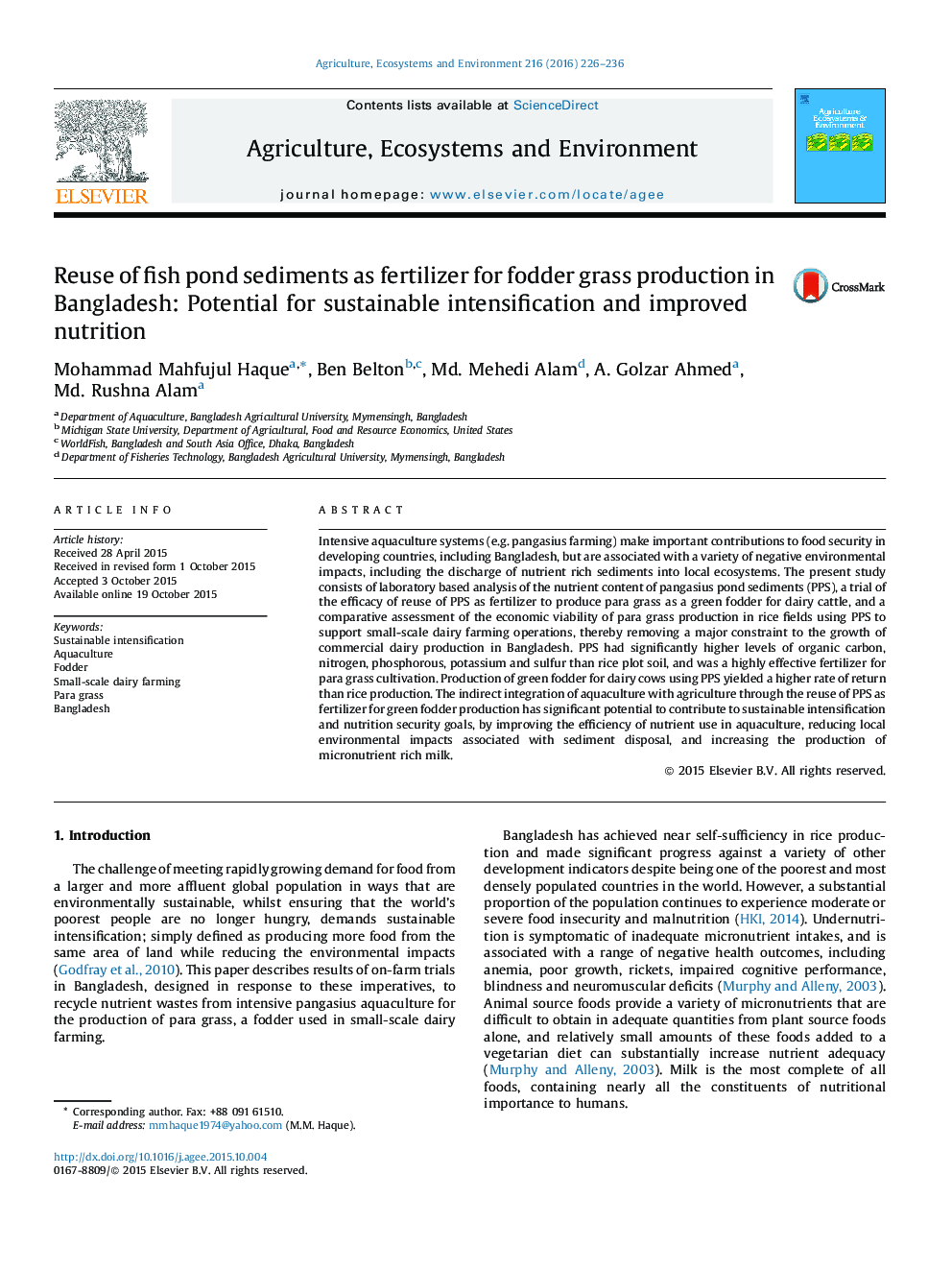| کد مقاله | کد نشریه | سال انتشار | مقاله انگلیسی | نسخه تمام متن |
|---|---|---|---|---|
| 2413644 | 1552036 | 2016 | 11 صفحه PDF | دانلود رایگان |
• Intensive aquaculture generates large deposits of N and P in pond sediments.
• Commercial dairy production in Bangladesh is constrained by lack of green fodder.
• Field trials producing fodder using pond sediments as fertilizer show encouraging results.
• Fodder grass yielded better net returns and cost benefit ratios than rice.
• Nutrient recycling from pond sediments for fodder grass production has potential to contribute to sustainable intensification.
Intensive aquaculture systems (e.g. pangasius farming) make important contributions to food security in developing countries, including Bangladesh, but are associated with a variety of negative environmental impacts, including the discharge of nutrient rich sediments into local ecosystems. The present study consists of laboratory based analysis of the nutrient content of pangasius pond sediments (PPS), a trial of the efficacy of reuse of PPS as fertilizer to produce para grass as a green fodder for dairy cattle, and a comparative assessment of the economic viability of para grass production in rice fields using PPS to support small-scale dairy farming operations, thereby removing a major constraint to the growth of commercial dairy production in Bangladesh. PPS had significantly higher levels of organic carbon, nitrogen, phosphorous, potassium and sulfur than rice plot soil, and was a highly effective fertilizer for para grass cultivation. Production of green fodder for dairy cows using PPS yielded a higher rate of return than rice production. The indirect integration of aquaculture with agriculture through the reuse of PPS as fertilizer for green fodder production has significant potential to contribute to sustainable intensification and nutrition security goals, by improving the efficiency of nutrient use in aquaculture, reducing local environmental impacts associated with sediment disposal, and increasing the production of micronutrient rich milk.
Journal: Agriculture, Ecosystems & Environment - Volume 216, 15 January 2016, Pages 226–236
